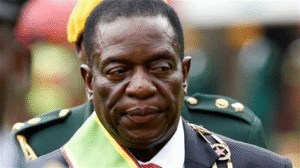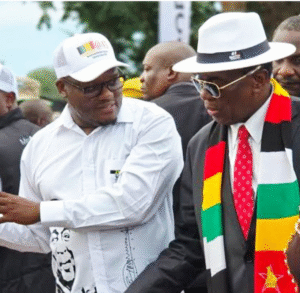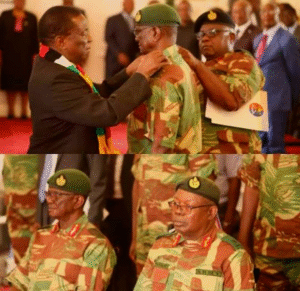MNANGAGWA’S NEPOTISM: The Brazen, Appalling Act of Stuffing Government Posts with Well-Connected Relatives, Friends, and Cronies

In a world striving for transparency, accountability, and fairness, the persistence of nepotism in government appointments remains a glaring stain on the democratic fabric of many nations. Zimbabwe, under the leadership of President Emmerson Mnangagwa, has found itself at the center of controversy due to allegations of nepotism and favoritism when filling government positions. The practice of placing well-connected relatives, friends, and cronies in key governmental roles is not only appalling but raises serious concerns about the integrity of the nation’s leadership.
Nevers Mumba, the head of the Sadc Election Observer Mission to Zimbabwe, has become a vocal critic of the government’s actions. He vehemently rejects accusations by the ruling Zanu PF party that the mission’s report was motivated by sinister motives. Instead, Mumba insists that the team’s findings were grounded in the Zimbabwean constitution, the Electoral Act, and the Sadc Guidelines.
The allegations of nepotism surrounding President Mnangagwa’s administration are far from isolated incidents. They are indicative of a broader pattern that has raised eyebrows both nationally and internationally. The practice of appointing individuals based on their personal connections rather than their qualifications and merit is detrimental to the overall health of any nation.
One of the most concerning aspects of this issue is the potential erosion of public trust in the government. When citizens perceive that government positions are being doled out to friends and family members of those in power, it undermines the belief that the government is working in the best interest of the people. It erodes the very foundation of democracy, which relies on the fair and equitable distribution of power.
Nepotism is not unique to Zimbabwe, but the brazenness with which it appears to be practiced has attracted significant attention. It sends a disheartening message to the country’s youth, who may begin to believe that their hard work and dedication will not be enough to secure a bright future. Instead, they may feel that their success is contingent on who they know rather than what they can do.
Furthermore, nepotism can lead to inefficiencies and incompetence within the government. Appointing individuals who lack the necessary skills and experience to fulfill their roles can have detrimental effects on the country’s ability to address pressing issues and implement effective policies. It also deprives more qualified individuals of the opportunity to contribute to their nation’s progress.
The Sadc Election Observer Mission’s report, as defended by Nevers Mumba, highlights the importance of adhering to established rules and guidelines when it comes to governance and elections. The use of the Zimbabwean constitution, the Electoral Act, and Sadc Guidelines as the basis for their findings underscores the need for a transparent and accountable electoral process. It also sends a clear message that impartiality and adherence to the rule of law are essential for any government to maintain its legitimacy.
In response to these allegations, President Mnangagwa’s government must take concrete steps to address concerns related to nepotism. This includes conducting thorough and impartial investigations into allegations of cronyism in government appointments and taking appropriate action if wrongdoing is found. Additionally, the government should prioritize merit-based appointments to ensure that individuals with the requisite skills and qualifications are entrusted with key positions.
Moreover, civil society organizations, the media, and international observers should continue to scrutinize government actions and hold leaders accountable for their decisions. Transparency and public awareness are critical tools in combating nepotism and ensuring that government actions reflect the will and interests of the people.
In conclusion, the allegations of nepotism in Zimbabwe are a cause for concern, not just for the nation’s citizens but for the international community as well. President Mnangagwa’s government must take immediate steps to address these allegations and demonstrate a commitment to fair and transparent governance. Only by doing so can Zimbabwe move towards a future where government positions are filled based on merit, not personal connections, and where the people’s trust in their leadership is restored.



